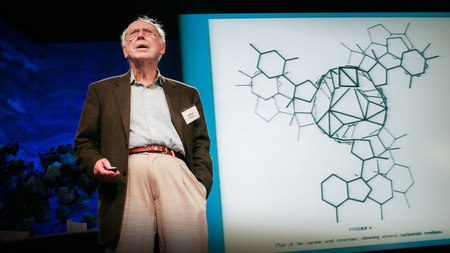
New Delhi – “We have discovered the secret of life,” declared American scientist James Watson in 1962, when he, Francis Crick, and Maurice Wilkins jointly received the Nobel Prize in Physiology or Medicine for unveiling the double-helix structure of DNA — a discovery that transformed modern biology.
Watson, one of the most renowned geneticists of the 20th century, has died at the age of 97, the Cold Spring Harbor Laboratory (CSHL) in the US confirmed. He had worked and conducted research there for decades, helping to shape it into a leading global scientific institution. He passed away on Thursday (US time) after a brief illness.
Although DNA was first identified in 1869, it wasn’t until 1943 that scientists realized it carried the genetic material responsible for heredity. The discovery of its double-helix structure by Watson and Crick remains one of the defining scientific milestones of the modern era.
Reflecting on his life’s work in a 2013 CNN interview, Watson said, “I think early on, I wanted to do something important with my life. I still want to think about science and really nothing else.” He added, “Being driven by the desire to find the truth — that’s really my legacy. The truth is complicated, but if you can start with it, it’s helpful.”
Born in Chicago in April 1928, Watson entered the University of Chicago at just 15, after earning a scholarship. His passion for genetics led him to Cambridge University, where he met Crick. Together, the two built physical models of DNA, culminating in their historic revelation of the molecule’s spiral structure.
In 1968, Watson took charge of Cold Spring Harbor Laboratory in New York, transforming it into one of the world’s top centers for molecular biology research.
However, his later years were overshadowed by controversy over racist and homophobic remarks, which cost him several honorary titles and drew widespread criticism from the scientific community.
In 2014, Watson made headlines again when he sold his Nobel Prize medal for $4.76 million at auction — an act that reflected his complex relationship with fame and recognition.
Reflecting on his groundbreaking work, Watson once remarked: “DNA was my only gold rush. I regarded DNA as worth a gold rush.”
With inputs from IANS